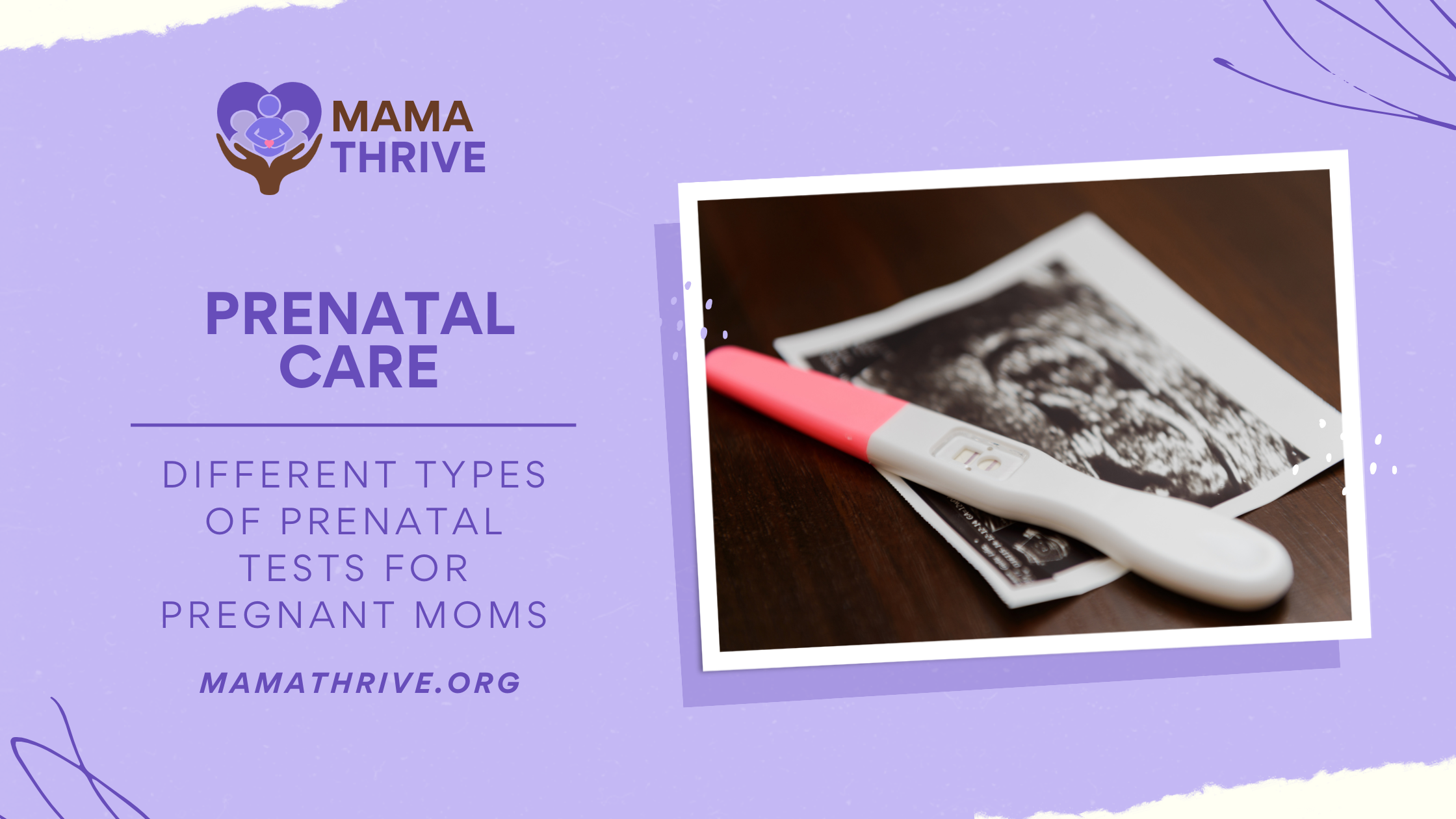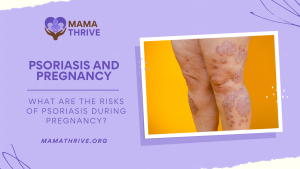As we celebrate Women’s History Month, it is essential to acknowledge the advancements in healthcare that have empowered women through knowledge and choice, particularly in prenatal care. Pregnancy is a remarkable journey, filled with anticipation and preparation. Prenatal tests play a crucial role in ensuring the health and well-being of both the mother and the baby. These tests can provide valuable information about the baby’s health, development, and the risk of certain conditions. Let’s explore the different types of prenatal tests available to pregnant moms.
Types of Prenatal Tests
First Trimester Screening
First Trimester Screening is a comprehensive approach that combines fetal ultrasound and maternal blood testing, typically conducted between 11 and 13 weeks of pregnancy. This dual method is designed to assess the risk of the fetus having certain chromosomal abnormalities, which can impact the baby’s health and development.
The fetal ultrasound, often referred to as a nuchal translucency screening, measures the amount of fluid at the back of the fetus’s neck. An increased amount of fluid can be an indicator of chromosomal conditions, including Down syndrome (trisomy 21) and Edwards syndrome (trisomy 18). This ultrasound provides a visual assessment that, when combined with maternal blood tests that measure pregnancy-associated plasma protein-A (PAPP-A) and human chorionic gonadotropin (hCG), enhances the screening’s accuracy.
The significance of First Trimester Screening lies in its ability to give expectant mothers early information about potential risks. While it does not diagnose conditions, it offers valuable insights, allowing for further diagnostic testing if necessary. This early screening empowers women with choice and preparation, reflecting the strides made in maternal health care.
Learn more about the stages of infant development.
Non-Invasive Prenatal Testing (NIPT)
Advancing further into the realm of prenatal care, Non-Invasive Prenatal Testing, or NIPT, marks a significant leap. Available as early as 10 weeks into the pregnancy, NIPT is a sophisticated blood test that examines small fragments of fetal DNA circulating in the mother’s bloodstream. This test is especially renowned for its efficacy in detecting chromosomal abnormalities such as Down syndrome, Edwards syndrome, and Patau syndrome (trisomy 13).
One of the most compelling aspects of NIPT is its non-invasive nature, posing no risk to the fetus while offering highly accurate screening results. It provides expectant mothers and their healthcare providers with critical information that can guide further diagnostic testing and management decisions throughout the pregnancy. NIPT’s precision and reliability represent the cutting-edge of prenatal diagnostics, symbolizing the empowerment of women through advanced healthcare technology.
Chorionic Villus Sampling (CVS)
Another one of the types of prenatal tests is Chorionic Villus Sampling. It is also commonly known as CVS, is a prenatal test conducted between the 10th and 12th weeks of pregnancy. It involves collecting a small sample of cells from the placenta, the organ that nourishes the fetus throughout pregnancy. The main goal of CVS is to identify chromosomal abnormalities, such as Down syndrome, and genetic disorders, including cystic fibrosis or sickle cell anemia, early in pregnancy.
CVS is particularly recommended for those at higher risk of genetic disorders, either due to family history or previous pregnancies. This early detection provides families with crucial information that can guide future decisions and medical care.
However, it’s important to approach CVS with awareness of its risks. As an invasive procedure, CVS carries a slight risk of miscarriage. The decision to undergo CVS should be made after thorough consultation with healthcare providers, weighing the benefits of early diagnosis against the procedural risks.
Amniocentesis
Amniocentesis, another significant prenatal test, is typically performed between the 15th and 20th weeks of pregnancy. This procedure involves the extraction of a small amount of amniotic fluid, which surrounds the fetus, using a fine needle inserted through the abdomen under ultrasound guidance. The amniotic fluid contains fetal cells and various chemicals produced by the baby, providing a wealth of information about the baby’s health.
Amniocentesis can detect chromosomal abnormalities, such as Down syndrome, Edwards syndrome, and Patau syndrome, along with neural tube defects like spina bifida and genetic disorders. It offers a high degree of accuracy in diagnosing chromosomal abnormalities and genetic conditions, making it a pivotal test for many expecting parents.
Similar to CVS, amniocentesis is invasive and carries a risk of miscarriage, albeit low. The decision to proceed with amniocentesis should involve careful consideration and discussions with healthcare professionals about the potential risks and benefits.

Ultrasound Scans
Ultrasound technology is another one of the types of prenatal tests. It has revolutionized prenatal care, offering a window into the womb to monitor the baby’s growth and development. These scans are performed at various stages throughout pregnancy, providing vital information about the baby’s health, anatomical development, and position. The first detailed anatomy scan, conducted between 18 and 22 weeks of pregnancy, is particularly significant. It assesses the baby’s developing organs and identifies any potential abnormalities. Moreover, ultrasounds can reveal the baby’s sex, a moment of joy and anticipation for many families. The non-invasive nature of ultrasound makes it a routine part of prenatal care, offering reassurance and bonding moments between parents and their unborn child.
Glucose Screening
Between the 24th and 28th weeks of pregnancy, glucose screening tests become a crucial step in identifying gestational diabetes—a condition that can develop during pregnancy and affect both the mother and the baby. This screening involves measuring the body’s ability to process sugar and is essential for early detection and management of gestational diabetes. Managing this condition is vital, as uncontrolled gestational diabetes can lead to complications such as preterm birth, high birth weight, and increased cesarean delivery rates. Early detection through glucose screening allows for timely intervention, diet modifications, and, if necessary, medication to control blood sugar levels, ensuring the health and safety of both mother and baby.
Group B Streptococcus Screening
Group B Streptococcus (GBS) screening is a critical test recommended for all pregnant women between 35 and 37 weeks of pregnancy. GBS is a common type of bacteria that can be found in the digestive and lower reproductive tracts of both men and women. While usually harmless in adults, GBS can pose serious risks to newborns if transmitted during delivery, leading to infections such as pneumonia, meningitis, or sepsis. The screening process involves a simple swab test, and if GBS is detected, antibiotics are administered during labor to prevent the bacteria from being passed to the baby. This proactive approach significantly reduces the risk of GBS-related complications, safeguarding the newborn’s health.
Celebrating Advances in Women’s Health
The evolution of prenatal testing is a testament to the incredible strides made in women’s health. These tests offer pregnant moms peace of mind and the ability to make informed decisions regarding their pregnancy and their baby’s health. As we celebrate Women’s History Month, let’s honor the contributions of the many women and healthcare professionals who have worked tirelessly to advance prenatal care. Their dedication ensures that every woman has the support and knowledge she needs to navigate her pregnancy with confidence.





